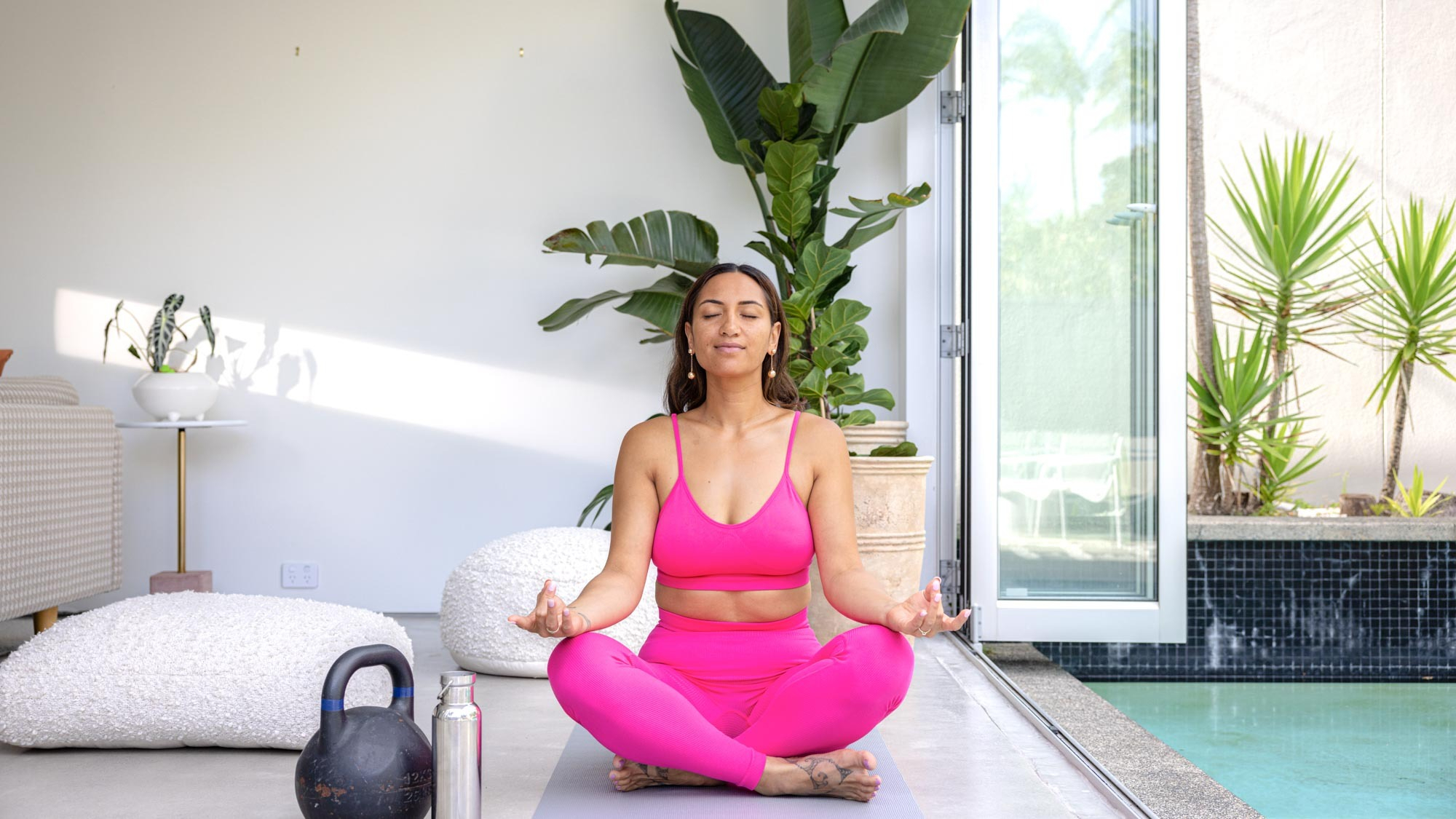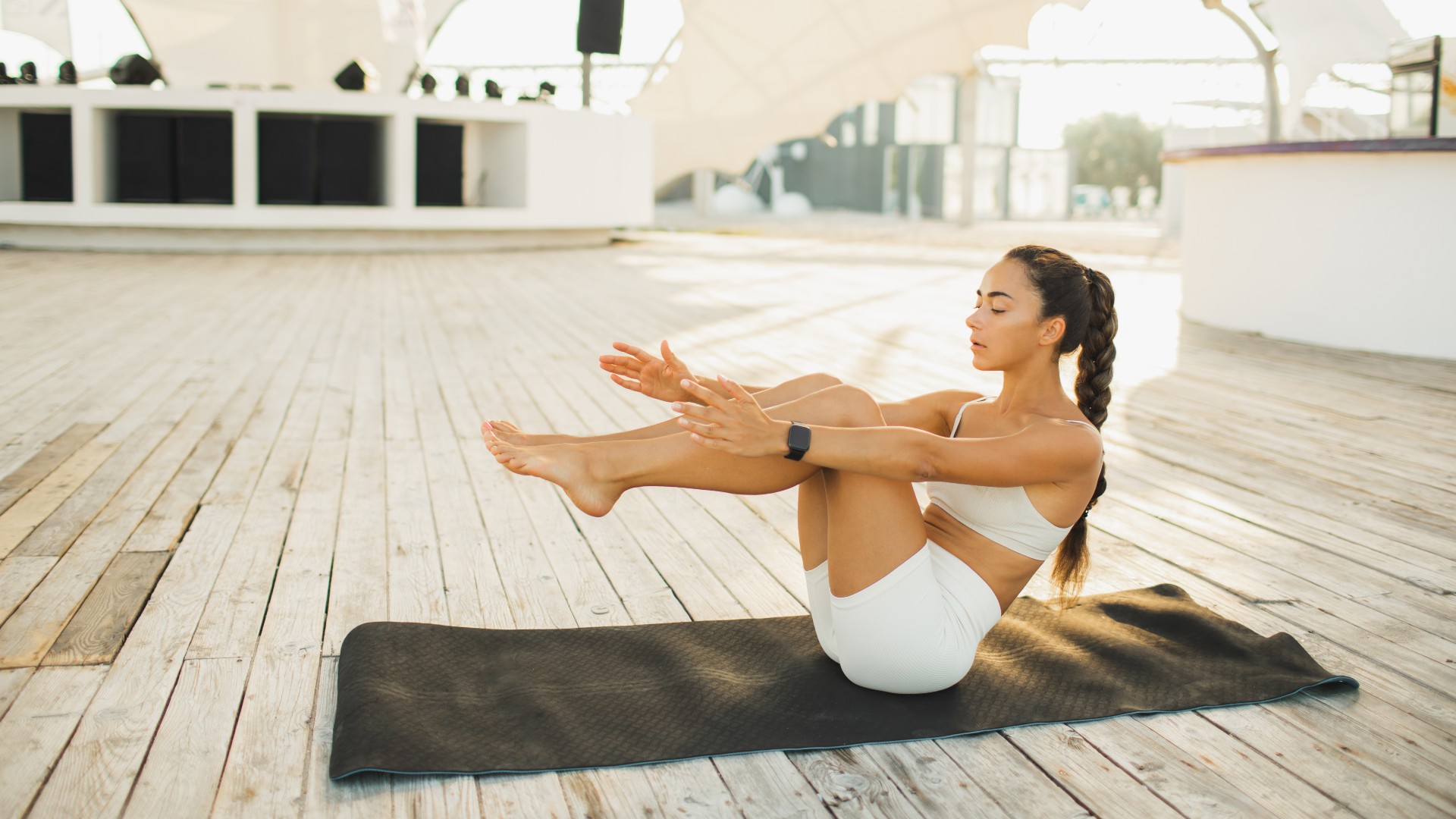I meditated for 10 minutes before exercise every day for a week — here's what happened to my mind and body
Just 10 minutes to boost your wellbeing

At the start of this year, I decided to make consistent meditation one of my wellness goals. And since incorporating it into my nightly routine, I’ve noticed that my muscle tension has diminished and I’m a lot more in tune with my body.
Seeing all of these positive physical changes made me wonder if I could also use meditation as a warm-up before my daily workouts. Would the same practice that’s been shown to relieve stress and improve focus better prepare me for vigorous exercise?
I downloaded Headspace (one of the best relaxation apps there is), searched for an appropriate guided meditation, laced up my sneakers, and closed my eyes for a few focused minutes before hitting the gym. Here’s how meditating before my workouts impacted my performance.
What are the benefits of meditating before a workout?
Meditation has long been heralded as a way to manage anxiety and enhance mood, but its advantages extend far beyond emotional wellbeing.
According to a study from the journal Neural Plasticity, meditation was found to positively affect endurance and cognitive function in college athletes. But you don’t have to be training for the big game to benefit from a little pre-activity meditation.
Greater endurance and cognitive function can improve your treadmill runs and barbell sets too, leading to more efficient workouts and better health overall.
How to do a pre-workout meditation
You won’t need any equipment, extra space, or previous experience to start a meditation practice; you’ll just need a few minutes and a relatively quiet room. If you're new to meditation, it can help to use a guided session.
Get instant access to breaking news, the hottest reviews, great deals and helpful tips.
I found Headspace’s library particularly robust, with guided meditations geared towards regulating sleep, processing anger and sadness, handling stress, and improving athletic performance.
I chose to do guided 10-minute movement meditations that focused on motivation, training, and recovery before my morning workouts for a week. Here's what happened to my mind and body during the challenge.
I was more aware of my body
I’m a bit guilty of trying to work through pain when exercising. As you might expect, I’ve suffered the consequences of various injuries, doctor’s visits, and necessary extended rest.
During one of my pre-workout meditations, I was cued to take inventory of my body and its position in space. During that scan, I noticed a slightly painful throb in my right knee.
It wasn’t intense enough to skip leg day, but it was acute enough to remember when starting the squat portion of my workout. Recalling that minor pain, I decided to slow my tempo on several exercises and pay closer attention to my form.
Of course, it’s impossible to say whether this prevented an impending injury, but a greater awareness of my body allowed me to focus more on the correct execution of each movement. But if I hadn’t meditated before the workout, I probably would have ignored my right knee and barrelled through leg day as initially planned.
Proper body awareness is crucial for everyone, but especially for those beginning a new workout routine or recovering from an injury. Pre-workout meditation could be a game changer for those who need to be extremely mindful of their form.
I was focused and alert

I’m also a bit guilty of picking up my phone and getting sucked into texts, emails, and social media in between sets. However, I noticed that I was much less distracted and much more alert during my week of pre-workout meditations.
I even finished entire workouts minutes faster than I had in previous attempts. And not that calorie burn should ever be your sole concern (most methods to measure it are inaccurate anyway), but I was consistently burning more calories than usual.
Most of us can fall prey to distractions while trying to exercise or struggle to find the energy to push through a challenging set. Meditating before workouts might make your efforts a lot more focused and efficient.
I recovered quicker
Generally, the faster your heart rate drops after exercising, the better your cardiovascular endurance and conditioning. My heart rate will usually decrease by around 90 beats per minute in the first two minutes post-exercise.
After a few challenging cardio workouts where I had meditated beforehand, my heart rate dropped by an additional 10 beats per minute on average. This quicker recovery and improved endurance was the biggest takeaway from my week of pre-workout meditation.
I didn't get stronger or faster
When beginning my pre-workout meditation experiment, I expected to lift a little heavier and run a little faster by the end of the week. But other than a quicker recovery, I didn’t really see any discernible improvements.
That being said, any legitimate strength, speed, and endurance gains will take much longer than a week to achieve. I guess that if I continued to meditate before workouts, I would start to see performance improvements within a few weeks.
It would be hard to know whether those improvements were due to meditation or just simply an acclimation to the activity (called the “principle of adaptation” in the fitness world), but there are plenty of other reasons to keep meditation in your warm-up programming. I’m definitely planning to keep it in mine.
More from Tom's Guide
- I took a mindful walk every day for a week — here's how it changed me
- You don't need weights to build mental strength — just 5 minutes and this short practice
- I just tried Chris Hemsworth's 5-minute breathing exercise to reduce stress

Jennifer Rizzuto is a freelance writer and certified personal trainer based in Long Island, NY. She covers various fitness-related topics and reviews for Tom's Guide. She also writes sketch comedy and short films, and performs frequently as an actor, singer, and improviser. When she's not writing, working out, or performing, you'll find her trying to convince her husband to get a dog.
 Club Benefits
Club Benefits
















